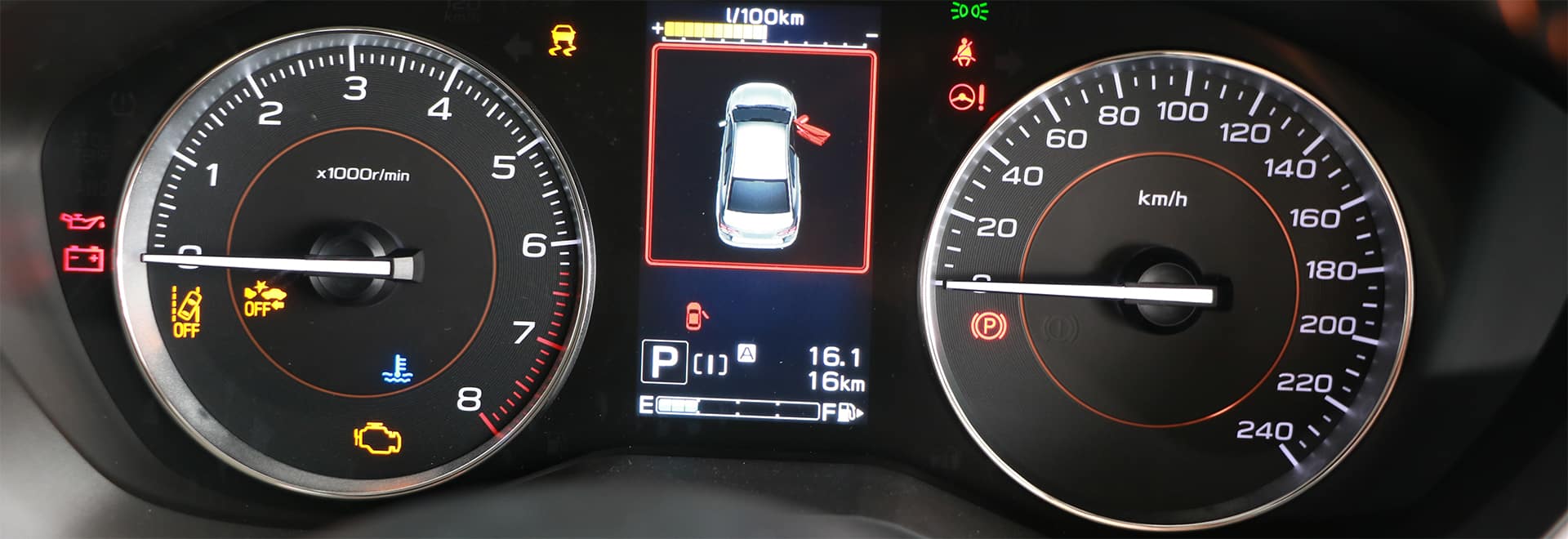VSC Light On Toyota Avalon can send a shiver down the spine of any car owner.
It’s a sight no one wants to see, but it’s one that could hold the key to your vehicle’s health.
This light, often ignored, could be the silent harbinger of a potential issue lurking within your beloved Toyota Avalon.
But is it a sign of a big problem?
Or just a minor glitch that can be easily fixed?
In this article, we delve into the details of the VSC light, unwinding its secrets, and providing you with the knowledge you need to keep your Toyota Avalon running smoothly.
So get ready and join us on this enlightening journey.
You might just find the answers you’ve been searching for.
What Does VSC Light Mean?

The “VSC Light” – an acronym that stands for “Vehicle Stability Control” – is a crucial component of your vehicle’s safety system. When this light illuminates, it indicates that the Vehicle Stability Control system, which is designed to help your car maintain traction on slippery surfaces and prevent rollovers, is either activated or malfunctioning.
If the VSC light is continuously lit, it could mean that the system is active and is helping you maintain control of your vehicle. However, if the light is flashing, it’s a warning that the system has found a problem with itself. This could be due to a variety of reasons, such as a faulty sensor or a mechanical issue.
In any case, a lit VSC light should not be ignored. It’s recommended to have your vehicle inspected by a professional to ensure your safety on the road. Remember, the VSC light is not just an indicator, it’s a vital line of communication between you and your vehicle’s safety system. It’s always worth paying attention to.
Why Does the VSC Light On Toyota Avalon Turn On?
When the VSC Light On Toyota Avalon flickers to life, it’s usually a sign that something is amiss within the intricate network of components that make up your vehicle’s stability control system. This could be due to a glitch in the sensors, an issue with the steering or suspension components, a hiccup in the ABS, or even a malfunction in the electronic control modules that oversee the stability control system. It’s your car’s way of telling you that something needs your attention.
-
Stability Control System is In Action
When the VSC Light On Toyota Avalon is illuminated, it’s a clear signal that your vehicle’s Stability Control System is in action. This system, a marvel of modern automotive technology, continuously monitors and adjusts your vehicle’s stability based on a multitude of sensor inputs from the engine.
Contrary to what one might think, the illumination of this light doesn’t necessarily indicate a malfunction or issue with the system. Rather, it’s a sign that the engine management component is actively engaged, working tirelessly to maintain stability as you navigate the roads.
Moreover, if the warning light is on but there are no other warning signs or noticeable changes in vehicle performance, it’s likely that the stability control module is functioning as it should. It’s providing an additional layer of safety and stability to enhance your driving experience.
However, it’s important to note that after the light blinks, it should go off. If it remains on, it could be an indication of other underlying issues that need to be addressed. Remember, your vehicle’s warning lights are its way of communicating with you – it’s always wise to listen.
-
Malfunction Within the Sensor System
A potential cause for the VSC Light On Toyota Avalon to illuminate could be a malfunction within the sensor system. The Vehicle Stability Control (VSC) system is heavily reliant on a variety of sensors that continuously monitor and collect data about the vehicle’s dynamics, such as wheel speed, steering angle, and lateral acceleration.
These sensors play a pivotal role in identifying any deviations from the expected behavior of the vehicle and triggering the stability control system when necessary. However, if a sensor malfunctions or provides inaccurate readings, it can cause the check engine light to come on. This could be due to damage to the O2 sensor, issues with the wiring, or problems with the calibration of the oxygen sensor.
When a sensor isn’t functioning correctly, it can impede the system’s ability to accurately gauge the stability of the car and make the necessary adjustments to maintain control. This is why it’s crucial to address any sensor issues promptly to ensure the optimal performance of your Toyota Avalon.
-
ABS (Anti-lock Braking System) Problem
The Anti-lock Braking System (ABS) in your Toyota Avalon plays a crucial role in maintaining vehicle stability, especially during sudden braking or when driving on slippery surfaces. This system works in tandem with the Vehicle Stability Control (VSC) system, enhancing your vehicle’s braking performance and preventing wheel lock-up.
However, issues with the ABS can cause the “VSC Light On Toyota Avalon” to illuminate. For instance, a problem with the wheel speed sensors, which are integral to the ABS system as they monitor the rotational speed of each wheel, can trigger the VSC light. If these sensors malfunction or provide inaccurate readings, it can disrupt the operation of the ABS, leading to the activation of the engine warning light.
In addition to sensor issues, hydraulic problems can also lead to ABS-related issues. Components like the ABS pump or valve, if malfunctioning, can impact the ABS system’s performance and subsequently cause the VSC light to come on.
In essence, the ABS and VSC systems are interconnected, and issues in one can often reflect in the other. Therefore, it’s important to address any ABS issues promptly to ensure the optimal performance of your Toyota Avalon and maintain its stability on the road.
-
Issues with the Steering or Suspension Components
The VSC Light On Toyota Avalon system relies heavily on data from various sensors, such as the steering angle and yaw rate sensors, to assess the vehicle’s stability and power. It uses this information to make necessary adjustments, ensuring a smooth and safe driving experience.
However, issues with the steering or suspension components can disrupt this finely tuned system. Problems with these components can interfere with the accuracy of the sensor readings, leading to the illumination of the check engine and VSC lights.
Components like the steering angle sensor, tie rods, control arms, and other elements of the suspension system are all integral to maintaining vehicle stability. If any of these components are compromised, it can affect the VSC system’s ability to keep your Toyota Avalon steady on the road.
Therefore, it’s crucial to address any steering or suspension issues promptly to ensure the optimal performance of your vehicle.
-
Vehicle’s Electrical System or Wiring
The VSC Light On Toyota Avalon could potentially be triggered due to issues within the vehicle’s electrical system or wiring. This could include:
- Connections that have become loose
- Spark plug wires in the combustion chamber showing signs of wear
- Issues arising within the output circuit
- Plug wires that have sustained damage
These issues could arise from a variety of factors such as wear and tear, corrosion, damage from accidents, or inappropriate modifications. These problems can lead to reduced power, diminished engine performance, or wiring issues.
These issues can interfere with the signal transmission and communication within the VSC system, causing the warning light to illuminate. It’s a reminder that your vehicle’s electrical system is a vital part of its overall performance and stability, and any issues should be addressed promptly to ensure the smooth operation of your Toyota Avalon.
-
Other System Malfunctions
In certain situations, malfunctions in systems other than the ones previously mentioned may trigger the “VSC Light On Toyota Avalon”. The VSC system is interconnected with numerous other systems within the vehicle, and a problem in any of these can cause the light to come on.
This could be due to issues with the service engine management system, irregularities in ignition timing, a vacuum leak, a faulty head gasket, or even transmission problems.
Furthermore, the vehicle’s computer network itself is often a common culprit behind engine warning lights. It’s a reminder that the automotive computer codes are a complex web of interconnected systems, and a glitch in one can often ripple across others. Therefore, it’s crucial to address these warnings promptly to ensure the smooth operation of your Toyota Avalon.
What are the steps to resolve the VSC Light On Toyota Avalon Issues?
If you’re facing issues with the “VSC Light On Toyota Avalon”, there are several measures you can undertake to tackle and potentially rectify the problem:
Here’s a step-by-step guide on how to check for loose connections that might be causing the “VSC Light On Toyota Avalon” to illuminate:
Inspect for Loose Connections
- Turn off the engine and ensure the car is parked with the parking brake engaged.
- Open the hood of your Avalon and identify the components of the VSC system. These may include sensors, control modules, and wiring connections.
- Inspect the wiring harnesses and connectors associated with the VSC system. Look for any signs of loose or disconnected wires, rust, or dirty spark plugs.
- If you discover any loose connections, disconnect them and then reconnect them securely. Make sure that the connectors are correctly aligned and locked into place.
- Conduct a visual inspection of the wiring for any signs of damage or fraying. If you spot any damaged wires, they may require repairs.
- After checking and securing all the connections, close the hood and start the engine to see if the VSC light is still on.
ABS system
Here’s how you can inspect the ABS system:
- Begin by examining the ABS system. Pay particular attention to the wheel speed sensors. Check for any signs of damage or dirt and ensure they are properly installed.
- Next, inspect the ABS control module. If it’s faulty, it could be causing the issue.
- Also, examine the ABS hydraulic unit and brake lines. Look for any vacuum leaks or damage to the ignition coil.
- For a more thorough investigation, scan the ABS for fault codes using a basic diagnostic tool.
- If the problem persists or if you’re unsure, consult an advanced-level specialist for further diagnosis and repairs.
Reset the System
Here’s how you can reset the system:
- Park your vehicle safely and switch off the engine.
- Find the fuse related to the VSC system in the fuse box. You can refer to your car’s manual for the exact location of the fuse.
- Carefully remove the VSC system’s fuse. You can use a fuse puller tool or gently pull it out with your fingers.
- Wait for about 1 to 2 minutes before reinserting the fuse. This pause allows the system to fully reset.
- Push the fuse back into its slot firmly until it is securely in place.
- Start your vehicle and check if the VSC light is still on. Often, resetting the system can resolve minor issues and turn off the check engine light codes.
Inspect the Steering and Suspension Components
Here’s how you can inspect the steering and suspension components:
- Begin by examining the steering and suspension components of your Toyota Avalon. This can be crucial in addressing issues related to the VSC light.
- Look for any signs of wear, damage, or looseness in the tie rods, ball joints, steering linkage, control arms, bushings, sway bar links, or broken emissions.
- Pay special attention to the condition of the steering angle sensor. Ensure that it is securely mounted and free from debris.
- If you notice any unusual sensations while driving, such as strange noises or vibrations, these could be indicative of problems with these components.
Also Read: Why Is My Speedometer Not Work And ABS Light On? – Solutions
Professional Diagnosis
In situations where the VSC Light On Toyota Avalon continues to illuminate, or if the root cause of the issue isn’t clear, it’s advisable to seek a professional diagnosis.
Specialized mechanics or authorized service departments possess the necessary tools and expertise to accurately pinpoint the underlying problem causing the VSC and check engine light to come on in your Toyota.
They will conduct a thorough inspection, scanning the vehicle’s systems for fault codes or anomalies. Remember, when it comes to your vehicle’s health, professional advice can be invaluable.
FAQs – VSC Light On Toyota Avalon
Is it OK to drive with VSC light on?
Yes, it’s generally safe to operate your Toyota Avalon even if the VSC light is on. However, it’s crucial to exercise caution while driving. The illumination of the VSC light could indicate that the Vehicle Stability Control system is temporarily disabled. This could affect your vehicle’s stability and traction control. Therefore, it’s advisable to maintain a moderate speed and avoid abrupt maneuvers or aggressive driving.
Is it possible to rectify a VSC light issue at home?
Yes, certain issues related to the VSC light can be tackled at home. This includes checking for loose connections, inspecting the steering and suspension components, or resetting the system.
However, depending on the complexity of the issue and the repairs required, professional expertise might be necessary.
For more complex problems, it’s recommended to seek help from a qualified mechanic or an authorized service center. Remember, your vehicle’s health is paramount, and professional advice can be invaluable in ensuring its optimal performance.
What steps can I take to prevent the VSC Light On Toyota Avalon from illuminating?
Here are some preventative measures you can take:
- Vehicle Maintenance: Adhere to the manufacturer’s maintenance schedule. Regular inspections and fluid changes can help keep the VSC system in optimal condition.
- Responsible Driving: Avoid aggressive driving behaviors such as abrupt maneuvers and excessive speeding that can trigger the VSC system. Always adhere to speed limits and maintain a safe distance from other vehicles.
- Tire Condition: Ensure your tires are properly inflated and have sufficient tread depth. Poor tire conditions can adversely affect the performance of the VSC system.
What is the function of VSC in a car?
The Vehicle Stability Control (VSC) in a car is designed to assist the driver in maintaining control of the vehicle during sudden maneuvers or adverse weather conditions. It can be classified as an active yaw-control technology, which also utilizes the functions of anti-lock brakes and traction control.
This means that the VSC system can automatically apply the brakes or adjust engine power to individual wheels if it detects a loss of traction or stability, helping to keep the vehicle on its intended path. It’s an important safety feature that can help prevent accidents by enhancing the vehicle’s stability.
Conclusion – VSC Light On Toyota Avalon
If the VSC Light On Toyota Avalon stays illuminated, it’s crucial to address it promptly to ensure your vehicle’s stability on the road.
By gaining a thorough understanding of the common issues that can trigger the VSC light, obtaining an accurate diagnosis, and resolving the problem, you can ensure your Toyota Avalon performs optimally.
This not only enhances your driving experience but also gives you peace of mind knowing your vehicle is in good condition.
Safe driving!




